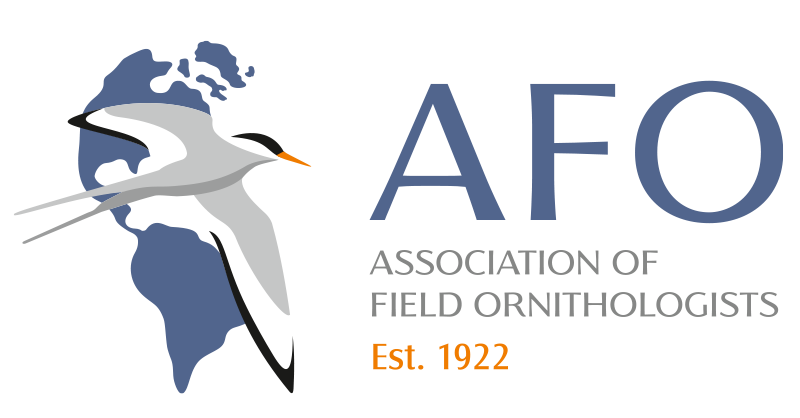On May 12, 2004, Dr. Alexander F. Skutch passed away peacefully at his home in Costa Rica. He leaves the legacy of over 40 books and hundreds of scientific articles.
Early in his scientific career, after changing focus from botany to ornithology, the Chapman Fund of the American Museum of Natural History gave Dr. Skutch a grant to study Resplendent Quetzals in Costa Rica. He spent a year living alone in the forest and the result was a romantic novel called Merenda.

He lived intentionally, simplifying his life so that he could make choices that were consistent with his philosophy. He built his home, farmed the land for his food, and studied the birds that lived on the farm. He never had a telephone, only recently had indoor plumbing, and when his wife Pamela’s health declined in the past few years reluctantly installed electricity. He was a vegetarian who preferred not to wear clothes using leather, although his reverence for life was not universal. He killed the snakes that threatened his beloved songbirds on his property and was not fond of bird-eating raptors.
For many years, Mass Audubon tours to Costa Rica stopped in Quizzara, a little town outside San Isidro del General, five hours’ bus ride from San Jose. That’s where Alexander and Pamela Skutch lived in the home they built on their farm, Los Cusingos. Their farm was a mecca for scientists and naturalists who had read Skutch’s books.
“A Naturalist on a Tropical Farm,” describes their lives and work in Costa Rica and introduced many non-scientists to the nature of the tropics. The Skutchs always greeted visitors warmly, inviting them to sit on the porch of their home overlooking fruit feeders. As Dr. Skutch discussed his work on bird behavior, including the pioneering ideas about helpers at the nest, visitors tried hard to focus on the conversation, while the distraction of many colorful tanagers and honeycreepers visited the feeders on the lawn.
While Dr. Skutch had not left the country in recent decades, he maintained an active correspondence with scientists all over the world, responding with letters typed on his manual typewriter. One could not expect a fast reply as there was no postal delivery to Los Cusingos and a two-month lag between letter and response was not uncommon. Many correspondents never actually met Dr. Skutch. I met the late Dr. Donald Griffin a few years ago on the Cape and learned that he had corresponded with Dr. Skutch for years and had hoped one day to meet him, but never did.
In 1998 the Association of Field Ornithologists and American Birding Association met with the Costa Rican Ornithological Association in San Jose. It seemed fitting to honor the scientist who had put ornithology in Costa Rica on the world map, so the Alexander F. Skutch Award for excellence in ornithology was established. Pamela and Alexander made the five-hour trip to San Jose, staying for the first time in a hotel that used keycards. At the culminating banquet, Alexander presented the first award to Dr. F. Gary Stiles of Colombia. Stiles, together with artist Dana Gardner, was co-author with Skutch of the Birds of Costa Rica.
After the banquet, Dr. Skutch told me he had planned to leave his money to the American Museum of Natural History because he had been the recipient of a Chapman Fund award and wanted to establish a similar fund. Because the Association of Field Ornithologists had honored him, and because of their focus on field ornithology, he had changed his mind and decided A.F.O. would be a more appropriate organization to administer his funds. Thus, the Pamela and Alexander F. Skutch Fund of the A.F.O. was established. The purpose of the fund is to provide grants that support life history studies of little known neotropical birds, especially their reproductive biology and behavior, with minimal disturbance to the birds. In short, Dr. Skutch wanted to encourage researchers who would follow in his tradition, the type of study for which very little money is currently available, especially in Latin America.
The Fund he established gives up to $10,000 annually and has supported many deserving scientists and projects, including a Peruvian studying the life history of a newly described antbird, a Colombian working on a suite of Andean birds, and a Brazilian observing the life history and reproductive biology of Restinga Antwren (Formicivora littoralis) on the island Cabo Frio.
The measure of Skutch’s influence was most visible in the coverage of his passing away on May 12, 2004, a week short of his 100th birthday. Lengthy obituaries appeared in Costa Rican newspapers as well as the Boston Globe, New York Times, Los Angeles Times, Seattle Times, Irish Times, and a lengthy interview was broadcast on National Public Radio. He was buried on his farm, Los Cusingos, which is now owned and administered by the Costa Rican Tropical Science Center. They plan to turn his former home into a museum of his life and work.
For more information about the Pamela and Alexander F. Skutch Fund including applications and deadlines in English, Spanish and Portuguese, please visit the Website of the Association of Field Ornithologists at https://afonet.org/.
Elissa M. Landre is chair of the Skutch Fund Committee, past president of the Association of Field Ornithologists, and director of MassAudubon’s Broadmoor Wildlife Sanctuary.
